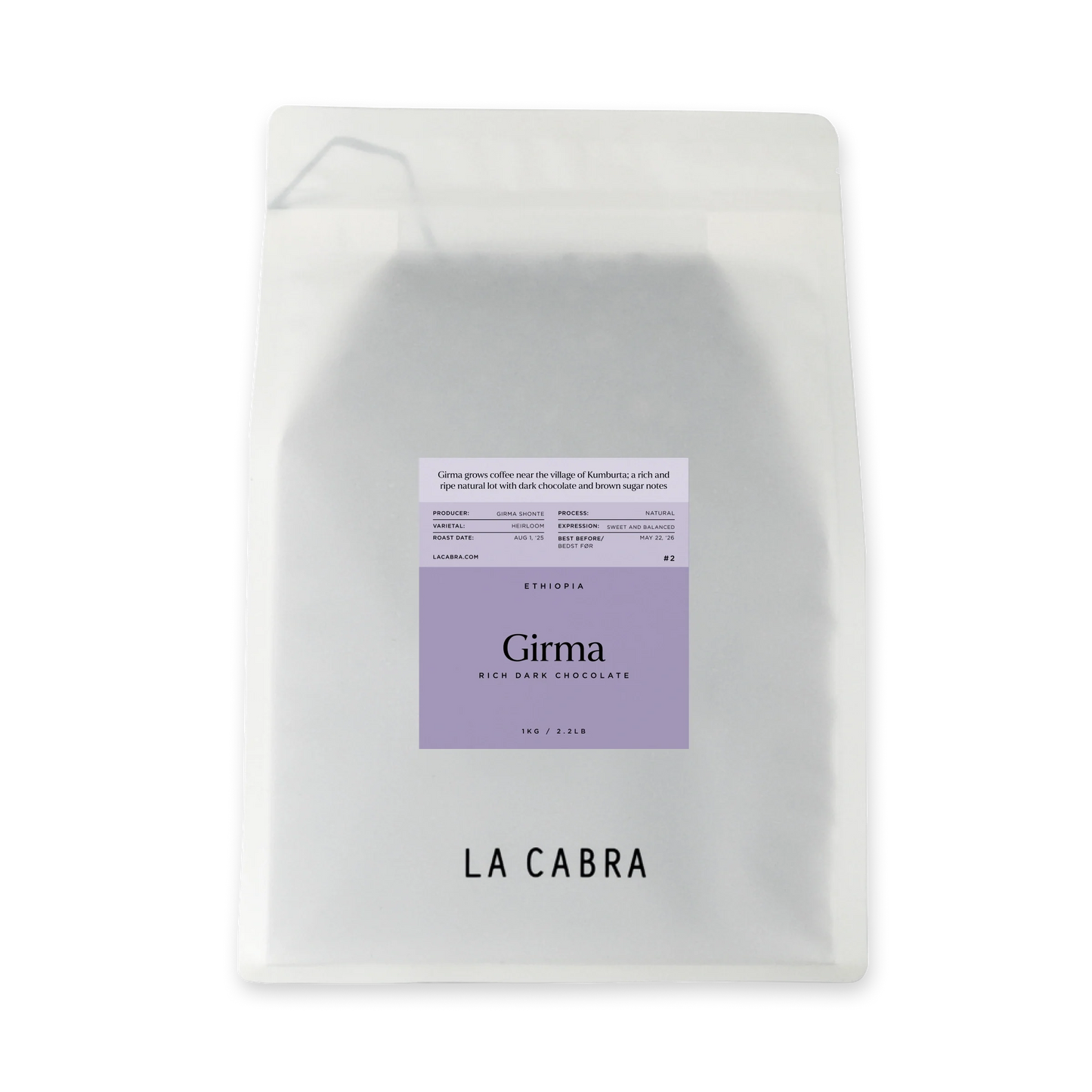

Girma Shonte
Girma Shonte grows coffee in the highlands of Sidama, near the village of Kumburta in the Chire district. Girma is a second generation producer, having inherited his 8.5 hectare plot from his parents. He now works the farm alongside his family, and hopes to pass his coffee business down to his six children.
The farm is semi-forested, working alongside nature to produce the finest raw material, consistently and without the use of agricultural chemicals. Girma’s coffee is planted alongside avocado, various fruit trees, and enset, or false banana, a popular plant in Ethiopia’s southern spine. False banana grows in harmony with coffee, fixing nitrogen into the soil, and is a key part of the local diet when cooked into a porridge.
-v1763389935349.jpg?900x1125)
Girma’s land lies between 1950 and 2000 masl, leading to excellent quality potential. He processes all of his coffee naturally, without any of the infrastructure required to produce washed coffees. Girma himself acted as the exporter of this coffee to La Cabra in Denmark and the USA, the first time he has been able to export directly.

This natural lot was an excellent find during this year’s rounds of cupping with CoQua in Addis Ababa, with a rich and ripe character of brown sugar, dark chocolate and soft stewed berries.
CoQua
The viability of new regions and new producers to the market is an interesting challenge for Ethiopia’s fast moving coffee industry. Providing agronomic support is vital in order to maintain the quality and iconic flavour profile of Ethiopian coffee. One of the driving forces behind this movement is CoQua, founded by Moata Raya and Ansha Yassin. Moata and Ansha previously worked together at international agricultural NGO Technoserve, and are experts in farming and farm management, as well as quality control and value chains. It was during their tenure that Technoserve supported the building of the Duromina, Nano Challa and Biftu Gudina cooperatives, which became iconic in the speciality industry around a decade ago.
-v1763389936241.jpg?900x1125)
Now, it is Moata and Ansha’s turn to push Ethiopian coffee forward again, by supporting new coffee producers on the high plains of Sidamo, in areas where coffee wasn’t viable just a decade ago. They have begun their work in connecting these producers to relevant buyers, who can pay premium prices for their excellent quality. We are excited to be on this journey with CoQua, having been introduced last year through our American friends at Crop to Cup.
-v1763389939397.jpg?1200x800)


























